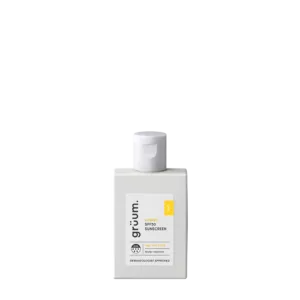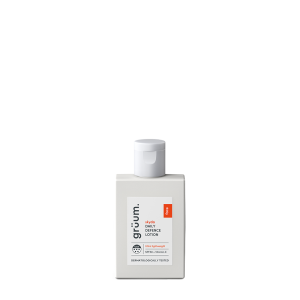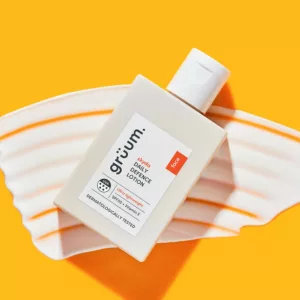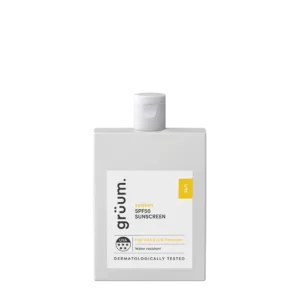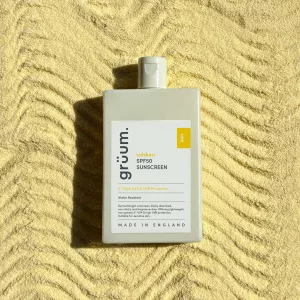Sunscreen is a non-negotiable when protecting our skin from the sun. But when it comes down to choosing which SPF to slather on, should you be reaching for SPF30 or SPF50?
Both offer pretty darn good protection, but those numbers do make a difference. We’re going to talk you through SPF30 vs 50 and break down the simple science behind sun protection.
Let’s start from the top – what does SPF mean?
The term SPF stands for Sun Protection Factor and is a measure of how well a sunscreen protects against both UVA and UVB rays.
|
UVA = Ultra Violet A rays, the sun’s longer rays which can lead to premature ageing & wrinkles. UVB = Ultra Violet B rays, the sun’s shorter rays which cause sunburn. |
Forms of SPF & sunscreen
SPFs can come in many forms, like lotions, creams, oils, and sprays – which are all photoprotective (a fancy way of saying they block the sun’s rays). These sun protectants contain active ingredients that work by either physically blocking (which is where the name ‘sun block’ comes from) or chemically absorbing the sun’s rays.
Physical blockers, like zinc oxide and titanium dioxide, create a barrier on top of the skin that reflects or scatters the sun’s rays away from the skin.
Chemical absorbers, on the other hand, penetrate the skin and absorb UV rays, converting them into heat and releasing them from the body.
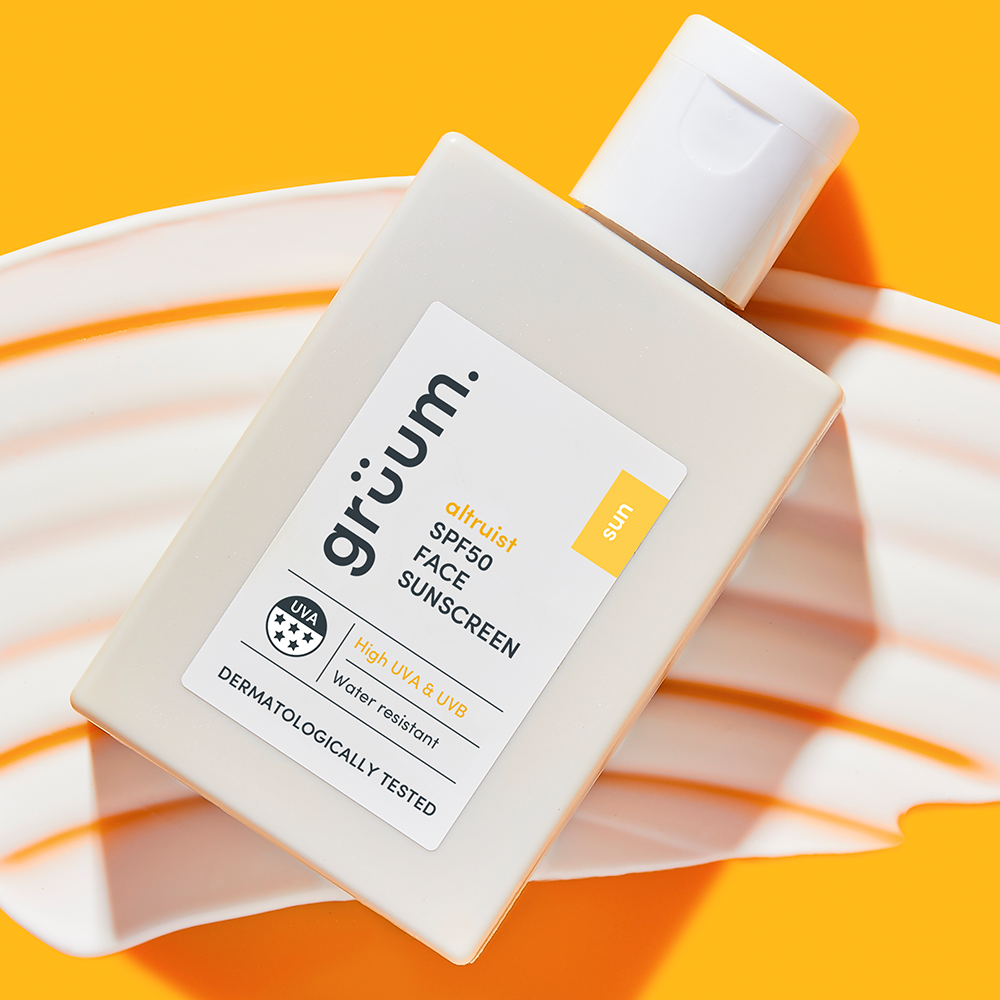
What does the SPF number mean?
So, if SPF tells us how effective a sunscreen is at protecting against UV rays, then what are the numbers that come after it?
There’s a pretty big misconception that the number signifies the period of time it takes for your skin to burn with sunscreen versus without. This isn’t true; otherwise, we’re sure people would be walking around with SPF 1000.
According to Steven Q Wang (MD) at the Skin Cancer Foundation, the SPF number shows “how long the sun’s UV radiation would take to redden your skin” when using the product (as directed) versus the amount of time without wearing any. So, if we’re looking at SPF 30 vs 50, it means that SPF 30 will take 30 times longer to burn your skin compared to no sunscreen, while SPF 50 takes 50 times longer.
The higher the number, the more protection you’ll get from UV rays since the sunscreen is able to block a higher percentage of them.
Does that mean SPF 50 is better than SPF 30?
SPF 50 is definitely designed to provide more protection than SPF 30.
Take our SPFs, for example. Our SPF30 5* offers as much as 96.7% protection from UVB rays. Compare this to our SPF50 5*, which can block up to a whopping 98%.
While that percentage may seem small, it actually makes a significant difference in terms of protection, especially if you’re spending prolonged periods of time in the sun.
Don’t discount SPF 30
You shouldn’t write off SPF 30 as a less effective option, though. Our SPF 30 still blocks out a significant amount of UVB.
We’d recommend using at least SPF 30 on a daily basis, and it can be a good top-up option if you’re wearing SPF 50 underneath.
-
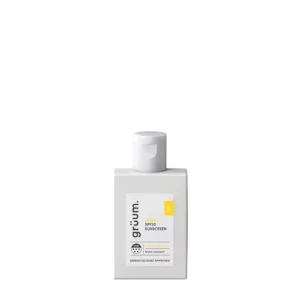
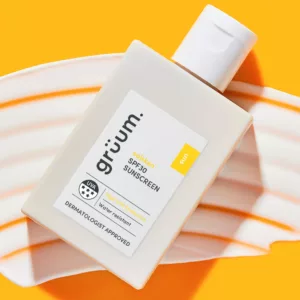 Face
FaceSPF30 5* UVA Face Sunscreen | 50ml
£8.00 — available on subscription from £7.00 every monthQuick AddSPF30 5* UVA Face Sunscreen | 50ml
£8.00 — available on subscription from £7.00 every monthIn stock
-
Sale!
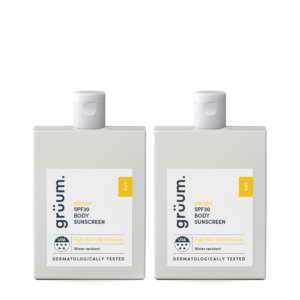
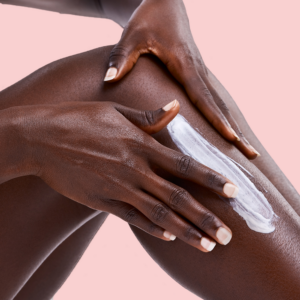 Sale
SaleSPF30 Body | 200ml | Twin Pack
Original price was: £26.00.£20.00Current price is: £20.00.Out of stock
SPF30 Body | 200ml | Twin Pack
Original price was: £26.00.£20.00Current price is: £20.00.
-
Sale!
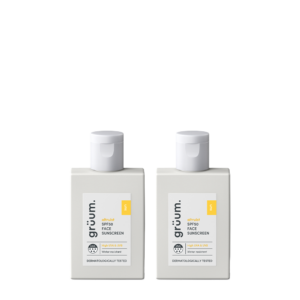
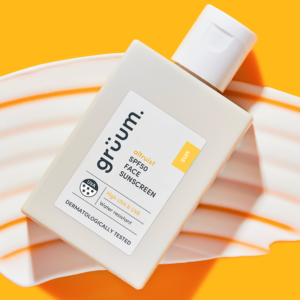 Sale
SaleSPF50 Face | 50ml Twin Pack
Original price was: £20.00.£16.00Current price is: £16.00.Quick AddSPF50 Face | 50ml Twin Pack
Original price was: £20.00.£16.00Current price is: £16.00.
-
Sale!
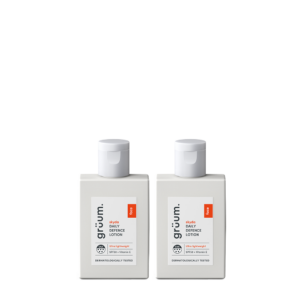
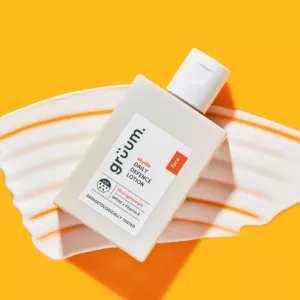 Sale
SaleSPF50 Daily Defence | 50ml | Twin Pack
Original price was: £24.00.£20.00Current price is: £20.00.Quick AddSPF50 Daily Defence | 50ml | Twin Pack
Original price was: £24.00.£20.00Current price is: £20.00.

How long does SPF 50 last compared to SPF 30?
As for how long SPF 50 lasts compared to SPF 30, it really depends on several factors, such as your skin type, sweating, water exposure, and application.
Neither lasts longer than the other, as we’ve already determined that the number has nothing to do with time. However, a higher SPF may provide longer-lasting protection against sunburns and UV damage since it blocks a higher percentage of UV rays for a longer period of time.
That doesn’t mean you can just apply it once and be protected all day though…
The importance of application
A lot of people – in fact, probably most – don’t apply the right amount of sunscreen to begin with. If you’re not using enough, you’re not going to get the full protection promised by the SPF number, and you’ll end up looking like a lobster at the end of the day.
Elizabeth K. Hale, a board-certified dermatologist also at the Skin Cancer Foundation, says we should be applying two milligrams of sunscreen per square centimetre of skin.
Reapply, reapply, reapply
Application doesn’t just come down to how much you apply your SPF but also how often you reapply. It’s not a one-and-done kind of deal.
Sunscreen should be reapplied roughly every two hours and even more frequently if you’re sweating or swimming.
The reason for this is sunscreen can rub off or break down over time, leaving your skin vulnerable to UV rays. So, even if you’ve applied enough sunscreen initially, it’s important to keep up with reapplication throughout the day to ensure you’re fully protected.
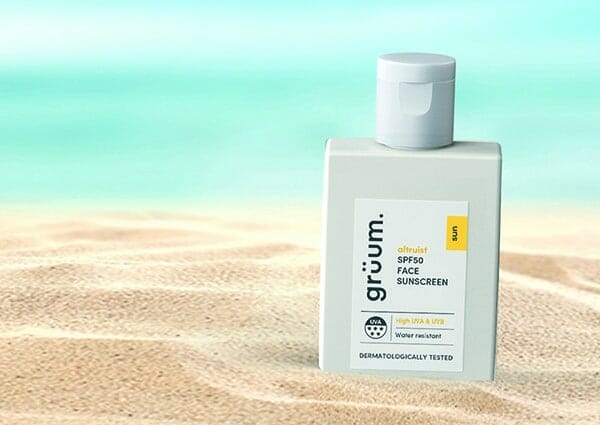
What else matters when it comes to sun protection?
SPF is usually the thing that we associate most with sun protection, but there are other important factors to consider as well.
|
UVA star rating – You’ve probably seen sunscreen bottles marked with a star rating, ranging from 0 to 5 stars. This indicates the level of protection against UVA rays. The higher the number of stars, the better the protection. Both our SPFs are 5* UVA rated. |
|
PPD rating – persistent pigment darkening (PPD) is another measure of how well a sunscreen protects against UVA rays (the ones that lead to premature ageing & wrinkles). Our SPFs have a high PPD rating (PPD 54 for our SPF 50, PPD39 for our SPF 30), meaning they provide excellent protection against these harmful rays. |
|
Broad-spectrum protection – This means that the sunscreen protects against both UVA & UVB rays. Our sunscreens contain Tinosorb® A2B – a great and highly-effective photostable filter that provides broad-spectrum protection. |
|
Water resistance – If you’re going to be sweating or swimming, it’s important to choose a sunscreen that’s water resistant. You’ll still need to reapply frequently, but the water resistance will help keep the sunscreen in place longer. |
How do you decide whether to use SPF 30 vs SPF 50?
All this info is great, but how do you decide whether to use SPF 30 or SPF 50?
Well, SPF 30 should be used as the absolute minimum for daily use both on your face and body. As soon as you step outside, you’re exposed to damaging UV rays, even on cloudy days. So, it’s important to protect your skin every day with at least SPF 30.
However, if you’re going to be spending extended periods of time in direct sunlight, like at the beach or during outdoor activities, then SPF 50 is a better choice. This higher level of protection will give you extra coverage and help prevent sunburns and long-term damage to your skin.
Sensitive skin = SPF 50
Another factor to consider is your skin type. If you have sensitive skin, we’d recommend opting for SPF 50 as your daily go-to. Sensitive skin is more prone to irritation and sun damage, so it’s important to have that extra layer of protection.
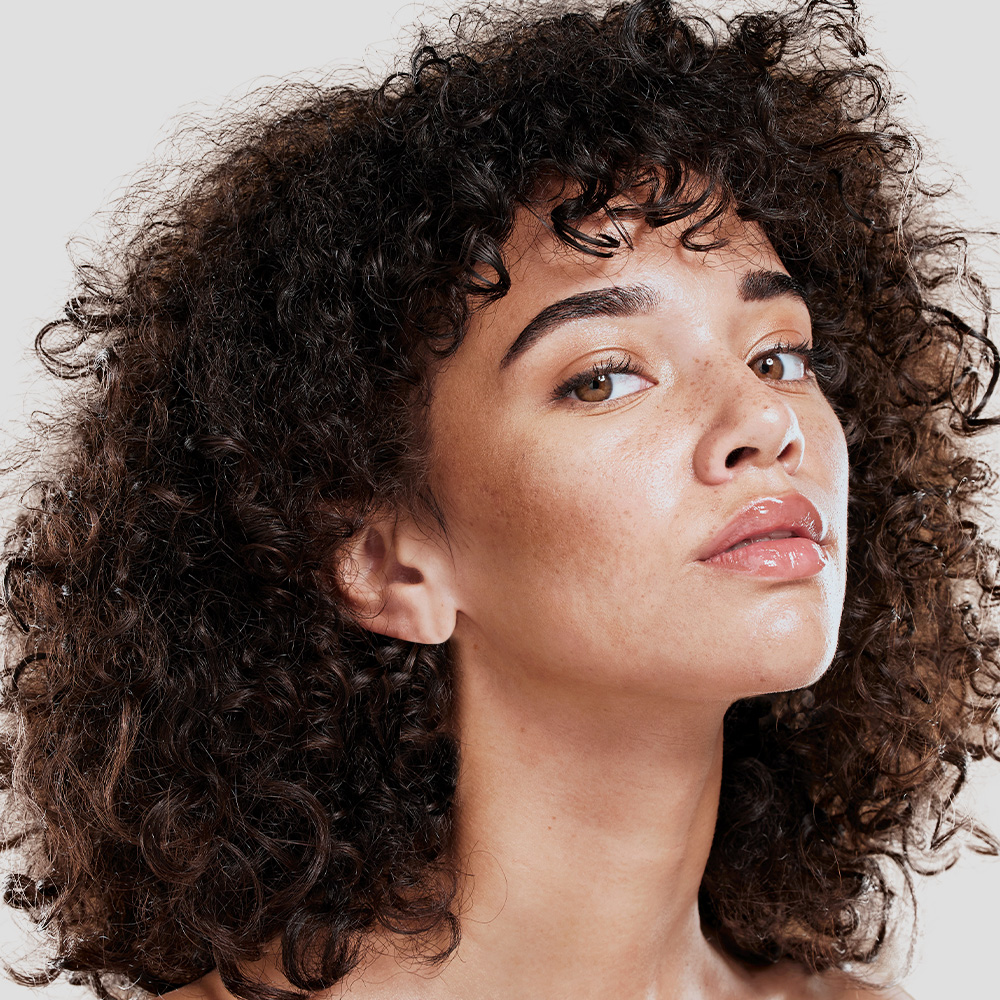
Fair & dark skin = SPF 30 or 50
If you have fair skin, you should reapply your SPF more often, since the melanin in your skin doesn’t provide as much natural protection against UV rays.
That’s not to say that you should opt for a higher SPF if you have lighter skin or a lower SPF if you have darker skin, but rather that you should be more diligent about reapplying throughout the day.
Mature & ageing skin = SPF 50
Mature skin is more delicate and at risk of sun damage, so opting for an SPF 50 as bare minimum is recommended. As we age, our skin loses elasticity and becomes more prone to wrinkles and sun spots, so it’s important to protect it.
Face vs body = SPF 30 or 50
There’s no difference in the sunscreen factor you should apply to your face versus your body. Skin is skin, and it all needs the same level of protection.
Amount of sun exposure = daily: SPF 30, prolonged: SPF 50
The amount of sun you’re going to be exposed to should dictate the strength of your SPF, however. If you’re going to be spending all day basking under the hot sun, then it’s best to opt for a higher SPF, such as SPF 50. You’ll need the maximum protection to prevent sunburn, premature ageing, and potential skin cancer risks.
But we’re not only exposed to the sun on vacation or at the beach. UVA and UVB rays are present every day, even on cloudy days. That’s why it’s imperative to make wearing SPF a daily habit. SPF 30 is recommended for daily use, so be sure to incorporate it into your morning skincare routine.

Protect your skin with our dermatologist-approved SPF
We’ve developed a series of 5* SPFs in collaboration with a leading British dermatologist consultant to bring you the very best in sun protection.
Our SPFs not only protect against UVA and UVB rays, but they also contain nourishing ingredients to hydrate and soothe your skin. Keeping your skin moisturised and hydrated is another line of defence against sun damage, so our SPFs are designed to do just that while also delivering top-notch protection.
Both our SPF 30 and 50 provide 5* UVA II protection and broad-spectrum UVB protection, making them perfect for everyday use. They’re also water-resistant, non-greasy, and hypoallergenic, making them suitable for all skin types. We have formulas suited specifically to both your face and body, so we really do have you covered from head to toe.
Our SPFs have been rigorously tested and are dermatologist-approved, so you can trust that your skin is in good hands.
Love, grüum.
Instagram | @gruum_hq
Facebook | @gruumHQ
FAQs
You should wear SPF 30 every day as a minimum, both on your face and body. Opt for SPF 50 if you’re going to be in the sun for prolonged periods of time or if you have fair, sensitive, or mature skin.
We can’t speak for all SPF products, but our SPF 30 provides reliable protection against both UVA and UVB rays. It uses Tinosorb® A2B broad-spectrum protection and blocks as much as 96.7% of UV rays. You should always reapply your sunscreen every 2 hours.
However, we recommend using SPF 50 if you’re going to be outdoors for extended periods of time.
Our SPF50 5* works incredibly well for protecting your face from harmful UV rays. Its lightweight, non-greasy formula is perfect for everyday use and won’t clog pores or cause breakouts. Our SPF50 Daily Defence Lotion is also a great option to incorporate into your skincare routine, offering the benefits of our sunscreen enriched with vitamin E for added nourishment.
While the amount of melanin in your skin does have an influence on how well your skin can protect itself from UV rays, that doesn’t determine the level of SPF you should use. In fact, everyone should aim for at least an SPF 30, regardless of skin colour, and SPF 50 for intense sun exposure, sensitive skin, or fuller protection.
Yes, you should always wear sunscreen even if your moisturiser states it has SPF in it. Most moisturisers with SPF typically have very low levels of protection and low UVA star ratings, which means they do not provide adequate protection against UV. Apply sunscreen as your last step in skincare before any makeup, and reapply if you can.
